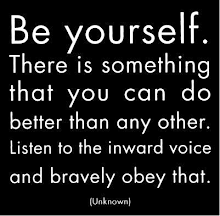



*Original Post – Monday, June 08 2009, 11:20pm
So I rounded up a couple of friends that were willing to watch the South African made movie based on a South African novel written by Marlene Van Niekerk - Triomf tells a tale of a poor white Afrikaner family that lives in the placed formally known as Sophiatown.
The time is 1994. And the political landscape is about to undergo a dramatic change. They are uncertain, yet certain of doom. The movie was surprisingly well directed and executed. There were a lot of uncomfortable scenes that make us all cringe. Like the incestuous scene involving the mentally retarded 20-year-old boy and his mother. How uncomfortable and highly disturbing! The movie touches on a lot of sensitive hush hush topics regarding Afrikaner families and the grim truth that the walls would tell if they could.
The story is one that didn’t focus too much on politics but gave a good indication of how things were back then for poor white South Africans. An angle I had personally never seen but have always been curios to explore.
Countless laugh out loud scenes made the teeth grindingly uncomfortable one a teeny bit easier to sit through.
I’m proud that South Africans are becoming more willing to uncover the real truth about our horrible past.
The stories need to be told. Only then can we heal as a nation.
We’re so infatuated with covering up our unbalanced and unfair past and equally obsessed with moving forward without addressing the emotions experienced that undoubtedly prevail to this day, that we can’t simply (ok, maybe not so simple) stop and look back and dissect.
The level of horror violent crimes endured by citizens of this country is a sure sign of the kind of deep-seated anger burdening men and women of this land.
I’d be interested in seeing how many Saffies actually knew about if let alone went out to watch it.
Reminds me of a movie released a few years ago “Catch a fire” that uncovered the truth we all read about in history books. I wonder how many bums warmed seats in the theaters during its duration.
I’m convinced we’re a nation scared to stare our past in the face and work through our faults.
It’s needed.
Desperately so.
Triomf was screened in the smallest theatre at the Labia Theatre - an independent movie theatre in Cape Town.
Indicative of the kind of people we are.
Seeds have been planted and are expected not to flourish into something. Trees are sprouting all over the place, those of anger, frustration, self-hatred and intolerance. They need to be pruned and healed.
*Once again due to my undeniable attachment to procrastination (this was written a hefty 6 months ago, but only getting shared now)
So a couple of weeks ago (when I wrote this it was weeks, now its months due to my attachment to procrastination) I was invited to watch a dance performance at the UCT dance school. The performance was on hair.
Hair?
Yup, hair.
I was awfully interested in hearing this notion out. We were all seated and it began -The journey to understanding why on earth anyone would base an entire performance on hair.
I must admit I smiled a little when I went to the bathroom just before it began and looked at mine. What an absolute mess!
The show began with an explanation of how the initiative started. It was a collaboration between UCT students and Jikeleza dance school (based in an underprivileged area and therefore the students were from the same background)
The lady who trained them got them to speak about their feelings related to hair and got them to get in touch with the way they felt about hair.
When they began dancing I was, naturally, trying to understand what they were trying to say about how they felt or what they were trying to portray. It was more difficult than anticipated. To penetrate one’s thoughts is hard enough and to try and make sense of what their movement meant; more so.
There was a question and answer session at the end of it all where all the girls got to answer questions from the audience. I love this concept. It made me feel closer to the dancers and made me feel like a part of the goings on which I really liked.
This decision revealed other things about the girls. Most of the girls from the townships had a very difficult time expressing themselves. It was almost as though they wanted to be invisible so said as little as possible.
There were a handful of girls that had a chance to speak as part of the performance and one of the girls was blonde. She explained how irritating it was that people would sum up her level of intelligence based merely on her hair colour. I was astonished to learn this as I had previously walked around with the thought that “blond girls have it easy” when in fact it was the opposite when it came to the professional environment. So my question was what advantages she gained from her hair colour (There had to be some). This young lady I posed the question to was very opinionated and intelligent and didn’t actually get to a point where she said that she benefits until the very end where she said sometimes she uses her femininity.
Her femininity.
I have that too.
This seemingly light-hearted performance turned out to be of much more importance and dispelled some preconceptions we had about each other’s hair. (And in a strange way our cultures and backgrounds)
We should have more of such gatherings. The quicker we dispel untruths about each other the better equipped we are to fight intolerance and bridge the seemingly insurmountable differences of race, creed and culture.
A Collage Of Thoughts & Experiences
